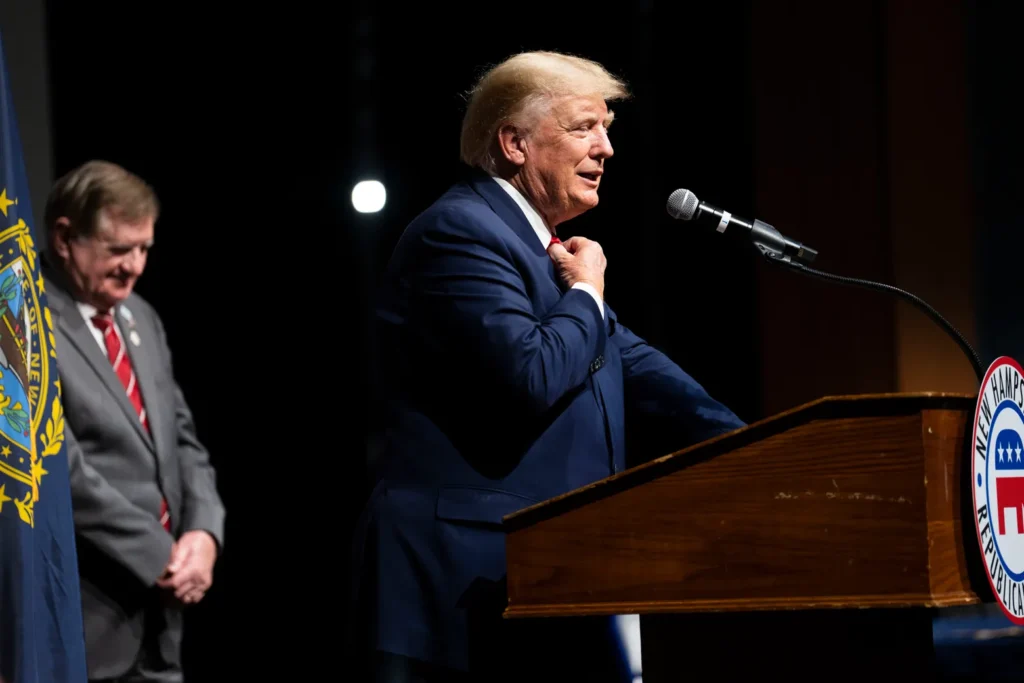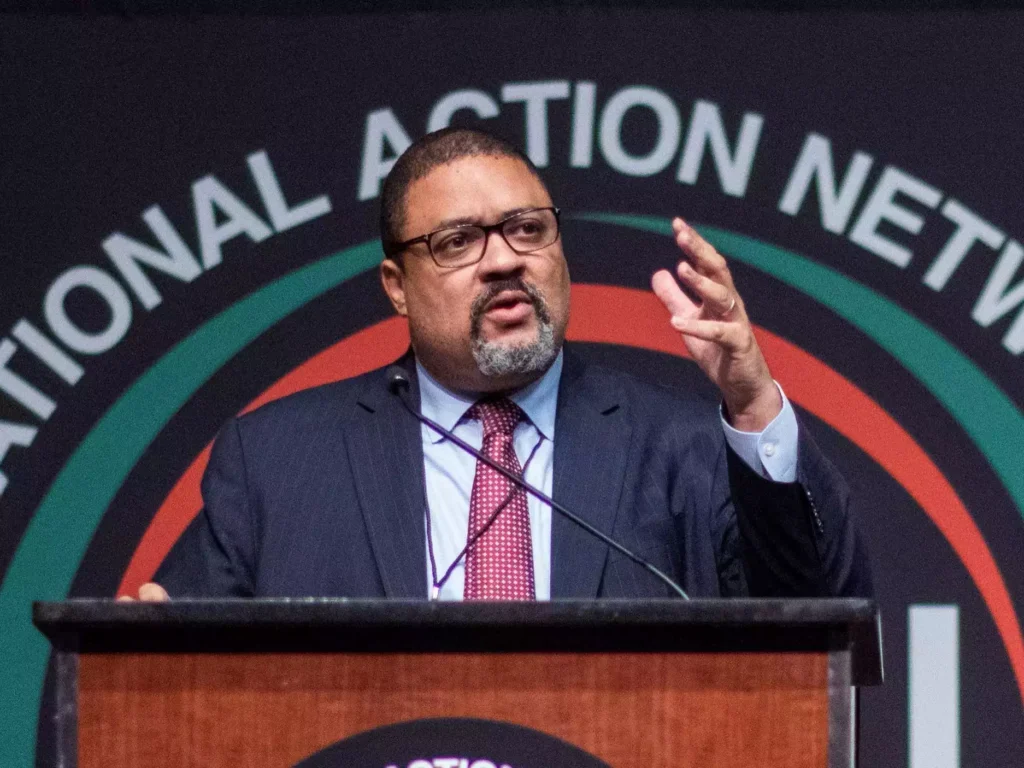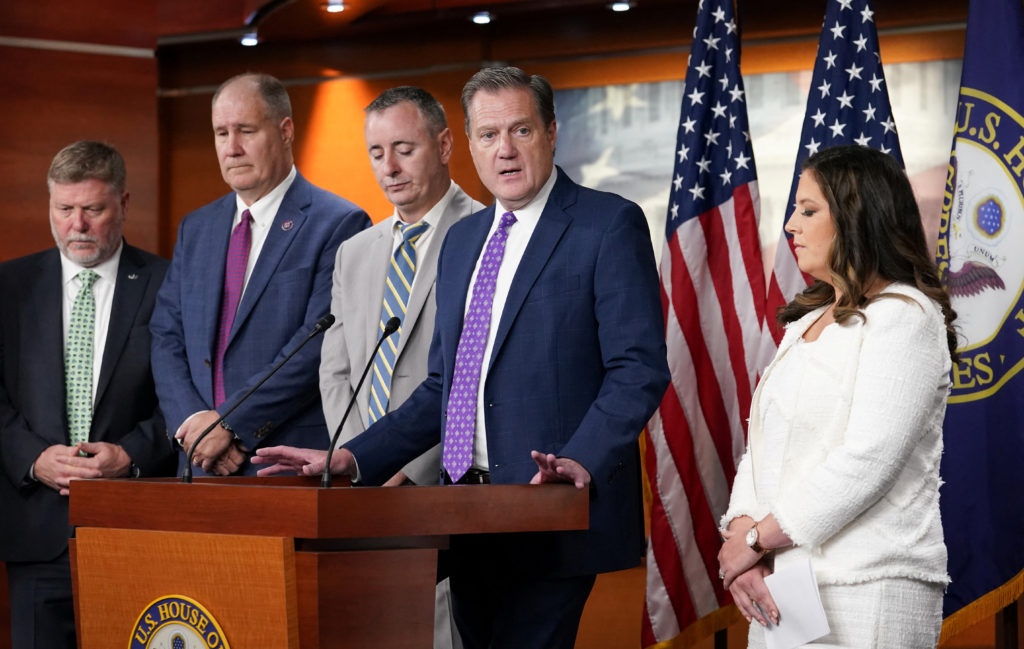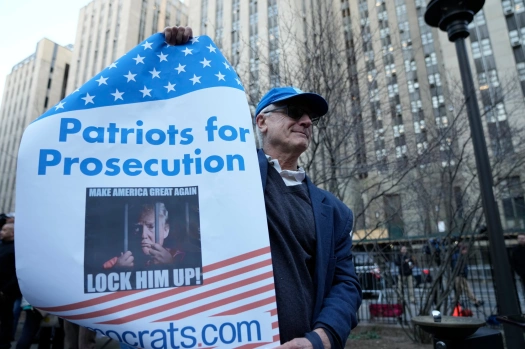
G.O.P. DEMANDS INFORMATION FROM NEW YORK PROSECUTOR ABOUT TRUMP CASE
House Republicans are demanding information from Manhattan District Attorney Alvin L. Bragg Jr. about his ongoing criminal investigation into former President Donald J. Trump. The demand has escalated the fight over the scope and limits of congressional oversight powers. While legal battles about the oversight authority of Congress were one of the hallmarks of Trump’s presidency, the demand for information from a state prosecutor about a potentially imminent indictment crossed a new line. It also foreshadows broader struggles to come if House Republicans also go after other local and federal prosecutors leading inquiries into Mr. Trump. The sharp exchange between Mr. Bragg and the House Republicans has raised the prospect of a legal showdown.

HISTORY IN THE MAKING AS HOUSE REPUBLICANS PUSH FOR UNPRECEDENTED INFORMATION
House Republicans are pushing the limits of their oversight powers with their demand for information from Manhattan District Attorney Alvin L. Bragg Jr. about his ongoing criminal investigation into former President Donald J. Trump. The fight is leading to litigation that could establish new precedents defining the scope and limits of congressional power to demand information. Mr. Trump wrote to Representative Jim Jordan, the Ohio Republican who chairs the Judiciary Committee, urging a congressional investigation into the “egregious abuse of power” by what he called a “rogue local district attorney,” Mr. Bragg. Then, last weekend, Mr. Trump incorrectly predicted that Mr. Bragg would have him arrested on Tuesday and called on his supporters to protest. On Monday, Mr. Jordan and two other House committee chairmen sent Mr. Bragg a letter demanding that he immediately turn over documents and testify before them by Thursday.
POTENTIAL LEGAL SHOWDOWN BETWEEN CONGRESS AND MANHATTAN DISTRICT ATTORNEY
The sharp exchange between House Republicans and Manhattan District Attorney Alvin L. Bragg Jr. has raised the prospect of a legal showdown. If neither side backs down, House Republicans will likely proceed to subpoena Mr. Bragg. He could ignore it, but it is not clear why he would have a claim to absolute immunity from a demand that he appears. Alternatively, he could appear but decline to answer questions that he says are beyond lawmakers’ legitimate purview. That would set up two options for House Republicans. They could declare him in contempt of Congress and, separately, they could decide to file a lawsuit against him — essentially asking a court to declare their subpoena legitimate and ordering him to more fully comply with it. Mr. Bragg, in turn, would urge the court to quash the subpoena.
CONGRESS AND THE MANHATTAN DISTRICT ATTORNEY ON THE FRONT LINES OF LEGAL PRECEDENT
The legal battles over congressional oversight authority during Trump’s presidency set the stage for the current standoff between House Republicans and Manhattan District Attorney Alvin L. Bragg Jr. While Congress has broad power to seek information that could be relevant to writing laws, that authority is not unlimited. Supreme Court precedents define the scope and limits of congressional power to demand information. The fight with Mr. Bragg raises the question of whether Congress has the right to subpoena a prosecutor for information about an ongoing investigation.

HOUSE REPUBLICANS’ QUEST FOR INFORMATION OVERSIGHT POWER
House Republicans demand information from Manhattan District Attorney Alvin L. Bragg Jr. about his ongoing criminal investigation into former President Donald J. Trump raises questions about the limits of congressional oversight power. The demand has led to a potential legal showdown and foreshadows broader struggles to come if House Republicans also go after other local and federal prosecutors leading inquiries into Mr. Trump, including investigations into his efforts to cling to power after the 2020 election and his retention of classified documents after leaving office.
Conclusion
The demand by House Republicans for information from Manhattan District Attorney Alvin L. Bragg is a clear example of the ongoing power struggle between Congress and the executive branch, particularly in relation to oversight authority. As with previous demands for information during the Trump administration, this demand is likely to lead to litigation and may result in new precedents defining the scope and limits of congressional power to demand information. The potential legal showdown between House Republicans and Mr. Bragg highlights the challenges in balancing the need for transparency and accountability with the limits of congressional authority. The outcome of this case will have significant implications for the future of oversight power and the relationship between Congress and law enforcement.
Disclaimer
The information provided in this article is intended for educational and informational purposes only. It is not intended to promote or support any particular political, social, or legal agenda. The views expressed in this article are those of the author and do not necessarily represent the views of any organization or institution. Readers are encouraged to conduct their own research and seek professional advice before making any decisions based on the information provided in this article. The author and publisher of this article shall not be held responsible for any damages or losses that may arise from the use of the information contained herein.


Insightful piece